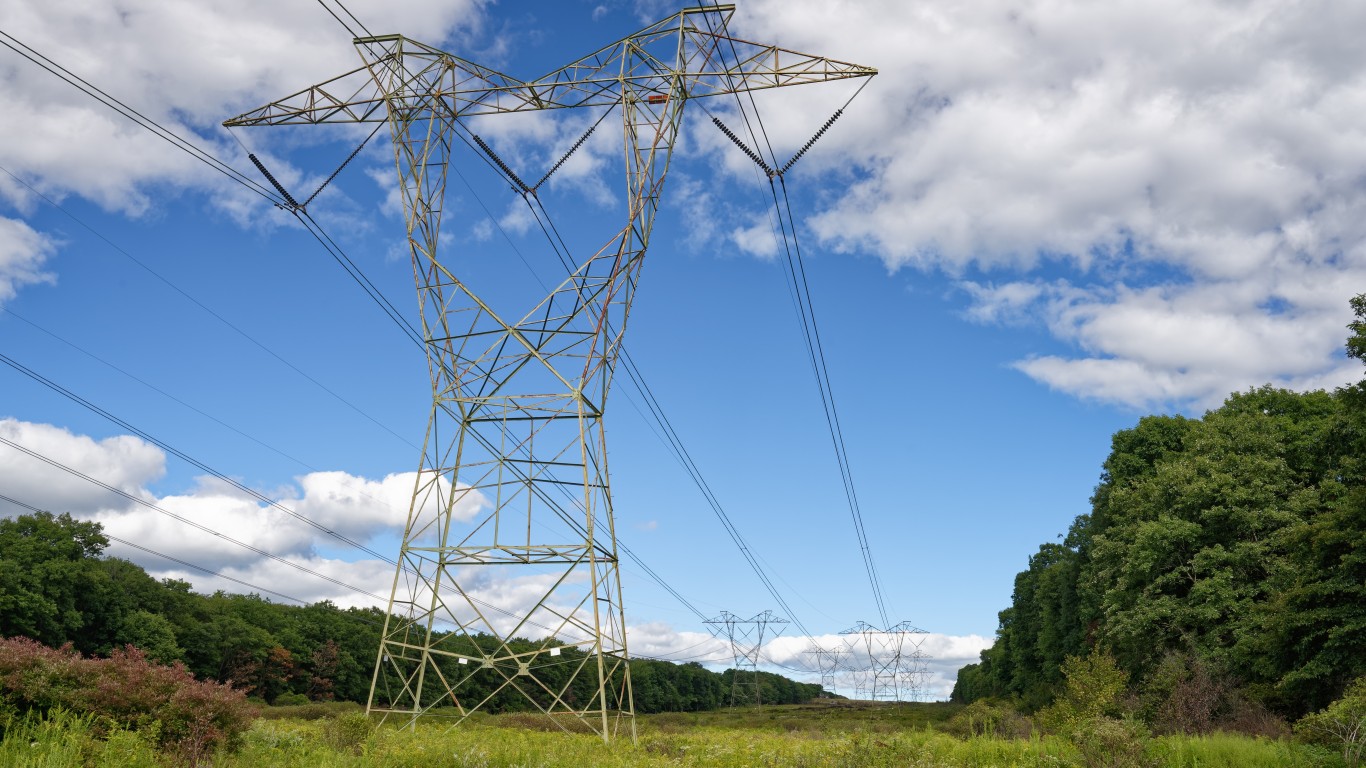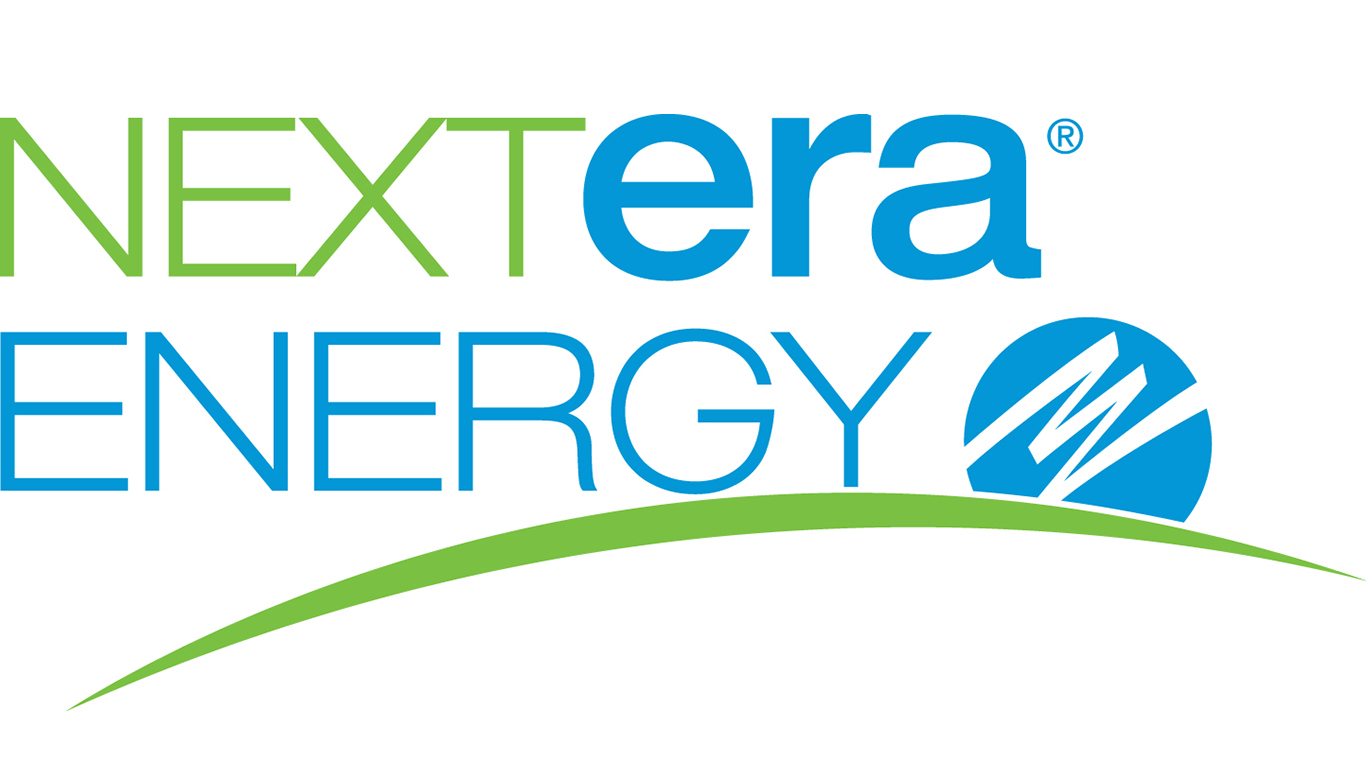
Many utilities stocks have taken off in 2024 due to the increased demand for electricity to power AI data centers. This thirst cannot seem quenched, so that’s great news if you own or are considering buying one or more utilities stocks or ETFs.
“Stocks in the utilities sector are easily the closest to their 52-week highs, while energy stocks are in the biggest drawdowns at down 17.6%,” Investor’s Business Daily reported comments from Bespoke Investment Group.
As of Sept. 30, the Utilities Select Sector SPDR ETF (NYSE:XLU) had a total return year-to-date of 30.5%. If it holds on to these gains for the remaining three months in 2024, it will be the sector’s best annual return in the past decade.
Not all 31 holdings in XLU have lit it up in 2024, but most have, so investors are naturally trying to find top-notch utility stocks to buy in October that will continue to do well for the remainder of 2024 and into 2025.
Here are my three best ideas.
Key Points About This Article:
- When it comes to American utilities stocks, bigger is better.
- Investors shouldn’t forget water-focused utilities.
- Sometimes, you don’t have to invest directly in utilities stocks.
- Sit back and let dividends do the heavy lifting for a simple, steady path to serious wealth creation over time. Grab a free copy of “2 Legendary High-Yield Dividend Stocks” now.
NextEra Energy (NEE)

Owning NextEra Energy (NYSE:NEE) stock gives you the best of both worlds: ownership in Florida Power & Light Company, America’s largest regulated utility with 5.9 million customer accounts in Florida, and the world’s largest generator of renewable energy through NextEra Energy Resources LLC.
It is the largest of 31 utilities stocks in XLU, with a $177 billion market cap, and accounts for 14.09% of the ETF, the largest weighting of any stock in its portfolio. Its shares are up nearly 39% YTD and 62% over the past 52 weeks.
Of the 23 analysts that cover NEE stock, 15 (65%) rate it a Buy, with a median target price of $86.00, about where it currently trades. According to MSCI data, the average stock in the S&P 500 gets a Buy rating from approximately 54% of analysts.
One reason NextEra’s stock has moved higher in 2024 is that interest rates have started to fall. As the rates continue to fall in 2025, the company’s dividend becomes more attractive to investors, especially those focused on income.
NEE stock split on a 4-for-1 basis in 2020. It could do the same before the end of the decade. It yields a reasonable 2.4%.
American Water Works (AWK)

American Water Works (NYSE:AWK), unlike many of the 31 holdings in XLU, is a regulated provider of clean water and wastewater services to over 14 million people in 14 states and 18 military installations.
AWK’s position within XLU is middle-of-the-pack with a 2.28% weighting, making it the ETF’s 16th-largest holding. Its shares have performed decently over the past year, up nearly 25%, better than many water-focused utilities it competes with, such as American States Water Co. (NYSE:AWR).
In 2024, it will spend $3.1 billion on its capital investment plan, adding 43,000 customers through acquisitions and organic growth. In late July, it said it expects to earn between $5.25 and $5.30 a share this year. Its shares trade at 27.5 times that estimate.
However, as long as it meets its long-term EPS and dividend growth rate targets of 7-9%, investors should have no problem paying a premium for the 2.1% dividend yield.
The utility reports its Q3 2024 results on Oct. 30 after the markets close. In addition, it will provide 2025 earnings estimates and long-term financial targets for the utility.
The analyst EPS estimates for 2024, 2025, and 2026 are $5.22, $5.66, and $6.11 a share, respectively.
Brookfield Corporation (BN)

If you’re familiar with Brookfield Corporation (NYSE:BN), you’ve probably already realized that I’ve gone off-script slightly. Not only is the alternative asset manager, not a utilities company, but it’s not even in the S&P 500.
Nonetheless, I’ve included it because of its 85% ownership of Brookfield Renewable Corp. (NYSE:BEPC), one of the world’s largest owners of renewable power sources such as hydroelectric, wind, solar, distributed energy and sustainable solutions across five continents.
BEPC shares are up a modest 9.8% in 2024. Over the past four years, since Brookfield Renewable Corp. was created to enable more institutions to invest in its stock—many large institutions and pension funds aren’t allowed to own limited partnership units—its shares have gained 12%, a mediocre result by any standard.
Morningstar’s analysts consider it the best investment in the U.S. renewable energy space because of its reasonable valuation.
“Brookfield Renewable holds a well-diversified global portfolio of clean energy technologies assets. The company targets 12%-15% returns (best-in-class) via a combination of organic growth and mergers and acquisitions. Acquisitions are central to Brookfield’s strategy, in which it invests alongside Brookfield Asset Management’s private equity funds,” Morningstar wrote on Sept. 27.
BN stock is a safer way to play utilities and renewable energy.
Travel Cards Are Getting Too Good To Ignore (sponsored)
Credit card companies are pulling out all the stops, with the issuers are offering insane travel rewards and perks.
We’re talking huge sign-up bonuses, points on every purchase, and benefits like lounge access, travel credits, and free hotel nights. For travelers, these rewards can add up to thousands of dollars in flights, upgrades, and luxury experiences every year.
It’s like getting paid to travel — and it’s available to qualified borrowers who know where to look.
We’ve rounded up some of the best travel credit cards on the market. Click here to see the list. Don’t miss these offers — they won’t be this good forever.
Thank you for reading! Have some feedback for us?
Contact the 24/7 Wall St. editorial team.





